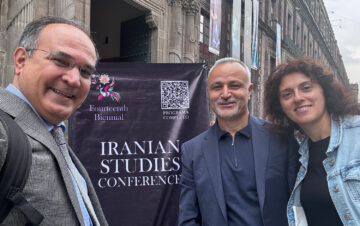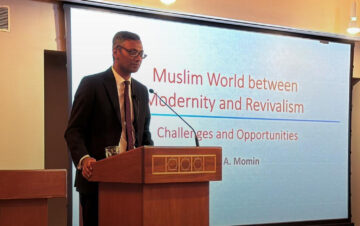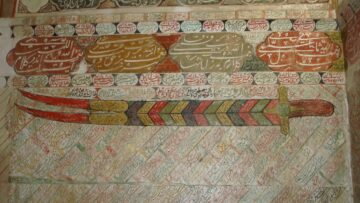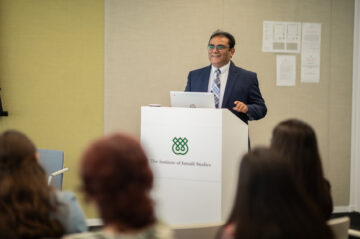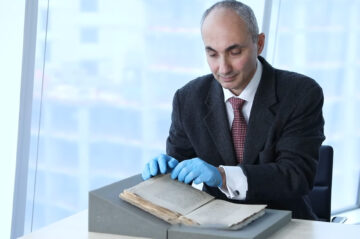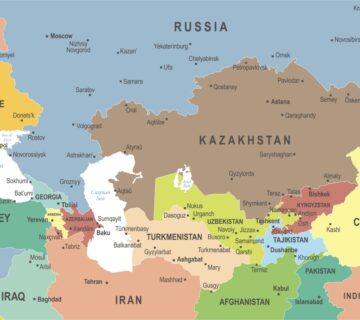Exploring poets in the Muslim milieu, Raficq Abdulla looked at a variety of poetic expressions and juxtaposed the ethos of poetry against the rapid pace and alienations of modern life. In poetry’s capacity to generate emotion, to have a surplus of meaning and to invoke an identifiable experience, he saw poetic expressions as close to the sacred in human cultures. Drawing upon examples from both European and Arabic-Persian poetic traditions, he rooted this power in the metaphorical language of poems, the interplay of different levels of meaning and a poet’s dealing with the limitations of language.
Earlier, in his introductory remarks, Dr Amyn Sajoo, the series’ organiser, highlighted the role of poetry in the context of ‘plural modernities’, noting that the ‘interplay of the lyrical and ordinary is what makes poetry so pressingly relevant to us today despite – or because – of the conceits of technology and the rest of the glitz of the modern’. The lecture was followed by a lively question and answer session about modernity and poetry and the relevance of Muslim poetic heritages to contemporary habitats and identities.
Future speakers in this series will include Professor Tavakoli-Targhi of the University of Toronto, Professor Sami Zubaida of London University, Dr. Ismail Serageldin of the Library of Alexandria, and Dr. Amira Bennison of Cambridge University.

